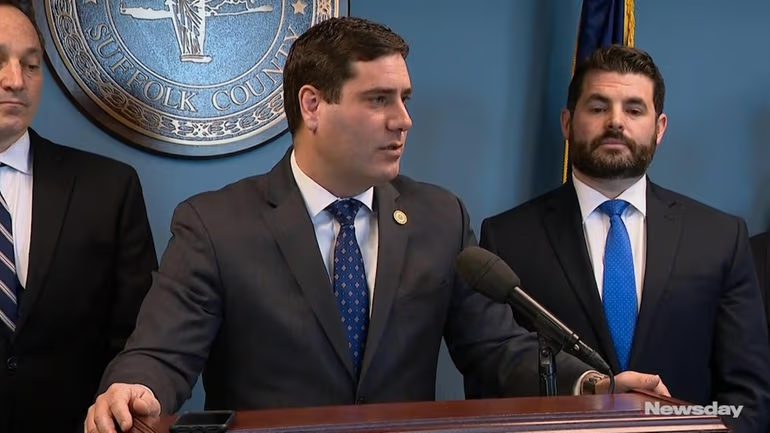The issue of Suffolk businesses underpaid staff has once again drawn national attention after the government released its latest “name and shame” report. Several local employers across Ipswich, Haverhill, Brandon and Bury St Edmunds were publicly identified for failing to pay their workers the legal minimum wage. These revelations expose the ongoing struggle for wage fairness in the UK and highlight how even small accounting mistakes or neglect can lead to serious financial and reputational damage for businesses.
The investigation showed that Suffolk businesses underpaid staff across multiple industries, including retail, hospitality and automotive services. Many of the employers claimed administrative errors, but the government emphasised that such excuses do not absolve them of responsibility. Underpayment directly affects the lives of hardworking employees and undermines trust between employers, staff and local communities who depend on fair wages to sustain livelihoods.
Suffolk Businesses Named and Shamed
A number of Suffolk businesses underpaid staff and were consequently named by the government in an effort to increase transparency and deter future violations. Among those identified were local convenience stores, salons and garages, some of which owed thousands of pounds in back pay. The government imposed financial penalties of up to 200 per cent of the total underpayment, ensuring affected workers received the wages they were owed along with an additional fine for each employer involved.
These revelations have caused considerable embarrassment for the businesses involved. Public exposure through the “name and shame” list not only affects their local reputation but can also have long-term consequences for customer trust and employee retention. The case serves as a reminder that maintaining accurate payroll records and regularly auditing staff payments are essential practices for avoiding such public humiliation.
Understanding Minimum Wage Laws in the UK
The cases where Suffolk businesses underpaid staff demonstrate the importance of understanding the UK’s National Minimum Wage (NMW) and National Living Wage laws. These regulations exist to protect workers from exploitation and ensure that all employees, regardless of age or role, receive fair compensation for their time and labour. Employers must calculate wages accurately, accounting for training, uniform costs and overtime hours to stay compliant with current legislation.
Common causes of underpayment often include unpaid trial shifts, deductions for uniforms or errors in recording working hours. While many of these mistakes are unintentional, they still constitute breaches of the law. Employers are urged to take proactive steps to stay compliant, such as implementing payroll audits, consulting HR specialists and using reliable accounting software to manage employee wages.
A Nationwide Problem Beyond Suffolk

The situation where Suffolk businesses underpaid staff mirrors a wider issue across the UK. Similar cases have emerged in Kent, where several local employers were also caught failing to pay the legal minimum wage. Beyond regional boundaries, national companies such as Tesco, John Lewis, Next and Sports Direct have all faced scrutiny for underpaying their employees in recent years, highlighting that this problem is not confined to small businesses.
Even internationally, wage underpayment has made headlines, with cases like celebrity chef George Calombaris in Australia and large corporations like Woolworths and NAB facing significant penalties. These global examples reinforce the fact that paying staff correctly is both a legal obligation and a moral responsibility. Transparency in payroll practices not only safeguards businesses from fines but also strengthens employee loyalty and brand reputation.
The Impact on Workers and Local Communities
When Suffolk businesses underpaid staff, the consequences were deeply felt by local workers. Many employees rely on their full wages to pay for rent, bills and daily essentials. Any underpayment, even if minor, can create immediate financial hardship and stress for affected staff. Over time, such incidents can erode morale, diminish trust and reduce workplace productivity as workers lose faith in their employers’ integrity.
The impact extends beyond individuals to the wider Suffolk economy. Lower earnings mean reduced local spending, which affects small retailers, service providers and other community businesses. Fair pay is not merely a legal obligation but a key driver of economic stability. By ensuring all employees receive what they are owed, local businesses help support a thriving and sustainable community.
Government Crackdown and Enforcement
In response to the growing issue of Suffolk businesses underpaid staff, the UK government has intensified its crackdown on wage violations. HMRC conducts routine audits, investigations and follow-up checks to identify non-compliant employers. The “name and shame” initiative serves as a powerful deterrent, publicly exposing companies that breach minimum wage laws and encouraging others to review their pay structures.
Employers found guilty of underpayment face mandatory repayment orders, public exposure and additional fines. The government has also launched awareness campaigns to educate both employers and workers about their rights and responsibilities. These measures aim to ensure that underpayment becomes increasingly difficult to conceal and easier to report, thereby protecting vulnerable workers from exploitation.
Lessons for Businesses in Suffolk and Beyond
The revelation that Suffolk businesses underpaid staff provides valuable lessons for all employers. Regular payroll reviews, accurate record-keeping and staff training on wage policies are critical steps in maintaining compliance. Small errors, such as miscalculating overtime or failing to reimburse uniform costs, can quickly escalate into serious legal issues if left unchecked.
For many Suffolk businesses, this incident should serve as a turning point toward more ethical employment practices. Building a culture of transparency and fairness not only prevents financial penalties but also enhances employee satisfaction and community respect. Businesses that prioritise fair pay tend to enjoy higher staff retention, better productivity and stronger customer loyalty.
Preventing Future Underpayment Cases
Preventing further cases where Suffolk businesses underpaid staff requires ongoing effort and commitment. Employers should implement digital payroll systems that automatically adjust for changes in wage laws and maintain detailed records of all payments. Consulting with HR professionals and financial advisors can help identify compliance gaps before they become violations.
Employees also play a role in prevention. Workers should understand their rights under the National Minimum Wage Act and feel empowered to question or report discrepancies without fear of retaliation. The government encourages open dialogue between employers and staff to resolve payroll issues early, promoting a healthier and more transparent workplace culture.
Conclusion: Building a Fairer Future for Workers
The recent revelations that Suffolk businesses underpaid staff serve as a powerful reminder of the need for fairness and responsibility in the workplace. Ensuring employees receive the correct pay is not just a matter of law but of integrity and respect. Businesses that value their workforce and uphold legal standards will always stand out as trustworthy and ethical employers.
By learning from these cases and improving wage compliance, Suffolk can set an example for other regions across the UK. Fair pay fosters loyalty, supports local economies and builds a stronger foundation for long-term business success. The future of Suffolk’s economy depends on transparency, accountability and the shared commitment to doing what’s right.
Frequently Asked Questions
Which Suffolk businesses underpaid staff?
The latest government report identified several local businesses, including garages, salons and convenience stores, that failed to meet minimum wage obligations across Suffolk.
What are the penalties for underpaying staff?
Employers can face fines of up to 200 per cent of the total amount underpaid, along with mandatory repayment to affected workers and public listing under the “name and shame” initiative.
Are large companies involved in similar cases?
Yes. Major corporations such as Tesco, Next, John Lewis and Sports Direct have all faced investigations and claims of underpaying employees in recent years.
How can businesses prevent wage underpayment?
Implementing reliable payroll software, conducting regular audits and staying informed about wage law changes can help prevent compliance issues.
What can employees do if they believe they are underpaid?
Workers should first speak with their employer or HR department. If concerns remain unresolved, they can contact HMRC or seek legal advice for further action.
You may also read: Core Components of the Business Computing World







